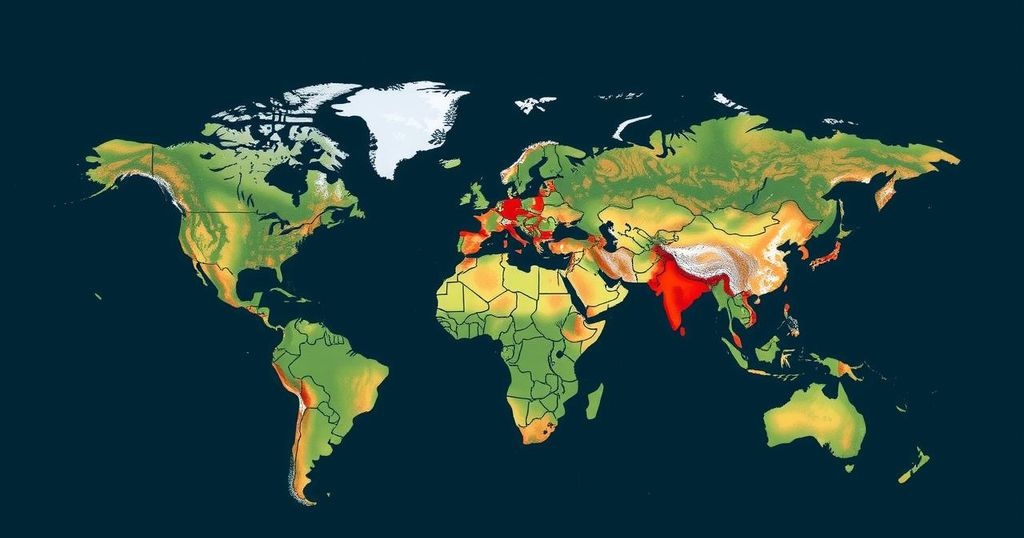Climate change is rapidly increasing migration rates, with millions displaced annually. The International Organization for Migration warns of an impending crisis, with projections estimating 216 million persons displaced by 2050, mostly located in Africa. The article emphasizes the need for effective policies and community involvement in decision-making related to climate impacts and migration management, presented during the ongoing Baku climate discussions.
As the planet continues to warm, migration driven by climate change is becoming increasingly prevalent, prompting millions to seek refuge from their homes. The nexus between climate impacts and migration is urgent, compelling global discussions such as those occurring at the Baku climate talks. Ugochi Daniels, Deputy Director General for Operations at the International Organization for Migration (IOM), emphasized that approximately 26 million individuals were displaced last year alone due to climate-related factors, which seriously disrupt livelihoods and agricultural viability. Daniels discussed various aspects of climate-related displacement, including disaster-induced migration, labor mobility, and planned relocation. She noted that current predictions indicate that by 2050, an estimated 216 million people could be displaced globally. Almost half of these individuals will be from Africa, facing compounded vulnerabilities due to regional water stress and other development issues. The urgency for sustainable solutions was echoed in her call for recognizing the plight of vulnerable communities in climate financing and planning. The impact of climate change is increasingly evident, with more frequent disasters such as floods, droughts, and heatwaves affecting millions. Daniels pointed to recent extreme weather events in Africa, which have exacerbated the crisis. She underscored the importance of integrating migration into adaptive strategies and highlighted IOM’s role in working with national governments on addressing these challenges through the Loss and Damage Fund, which aims to support vulnerable populations. Moreover, Daniels emphasized that effective migration management can be a pivotal strategy for adapting to climate change. She called for vulnerable communities to actively participate in decision-making processes regarding climate policies. With existing solutions and frameworks, including the Global Compact on Migration, there is an obligation for collective action to ensure migration is safe and dignified. Without these measures, the cycle of vulnerability will lead to increased trafficking and loss of life according to Daniels’ dire warnings about the impacts of inaction.
The article addresses the critically urgent issue of climate migration, which has emerged as a severe consequence of climate change. As global temperatures rise, the number of individuals forced to flee their homes due to environmental factors is escalating. The International Organization for Migration (IOM) is playing a pivotal role in advocating for policies and solutions to address this crisis, particularly during conferences like the one in Baku where these discussions are central to global climate negotiations. Daniels’ insights illustrate the multifaceted repercussions of displacement, including impacts on livelihoods and community resilience, coupled with the pressing need for a global response to protect affected populations.
In summary, climate migration is escalating, with millions displaced due to climate-related impacts. The urgent need for sustainable solutions, as highlighted by Ugochi Daniels from the IOM, indicates that climate change mitigation must include proactive measures for migration management and adaptation strategies. With significant projections of future displacement, particularly in vulnerable regions like Africa, it is essential that global leaders prioritize effective policies to support affected populations and integrate their needs into climate finance and planning.
Original Source: www.ipsnews.net






